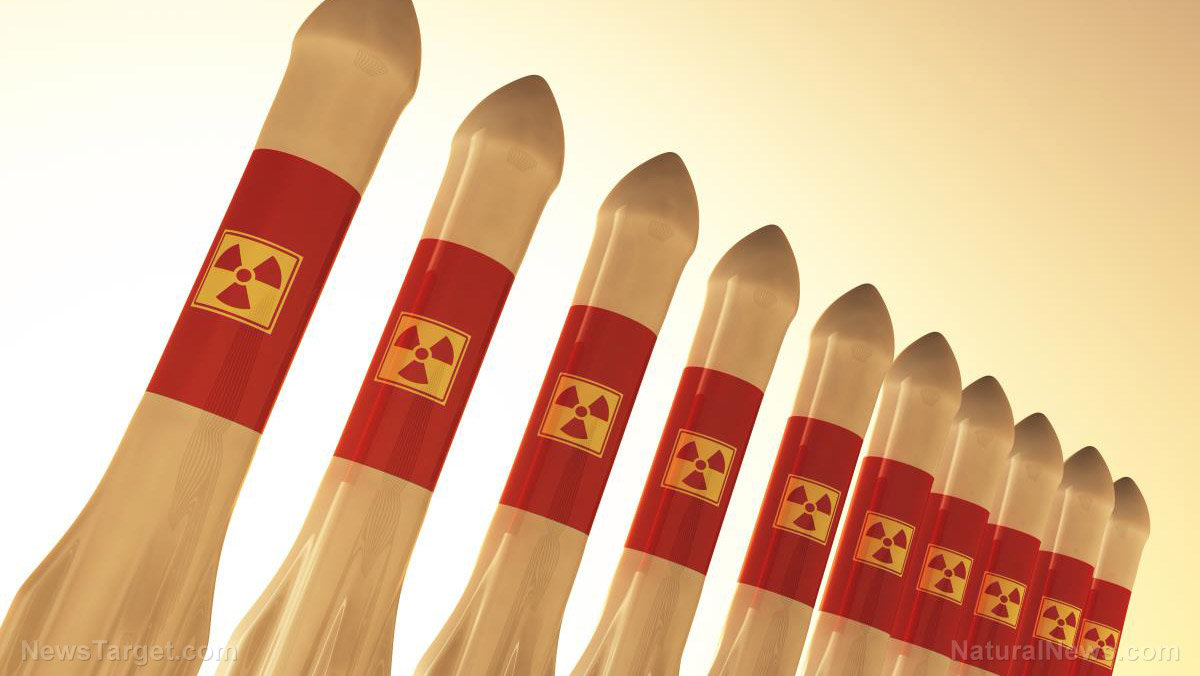 Parler
Parler Gab
Gab
- India and Pakistan engaged in cross-border airstrikes over Kashmir, escalating tensions and raising global fears of an uncontrollable conflict.
- India conducted "Operation Sindoor," targeting alleged terrorist camps in Pakistan in retaliation for a deadly attack on civilians in Kashmir.
- Pakistan shot down multiple Indian jets, including advanced Rafale fighters, and vowed further retaliation, calling India’s strikes an "act of war."
- Global powers, including the U.S., Russia, and China, urged de-escalation, but nationalist rhetoric in both countries intensified the crisis.
- The conflict risks spiraling further as India suspends the Indus Water Treaty, cutting off river flow to Pakistan, while nuclear tensions loom.
India’s preemptive strikes spark crisis
Indian forces are conducting "Operation Sindoor," striking nine locations in Pakistan and Pakistan-administered Kashmir, including Kotli, Muzaffarabad, and Ahmed Pur East. The operation, named after the red vermilion powder symbolizing Hindu marital commitment, was framed as a direct response to the April 22 massacre of 26 civilians in Pahalgam, Kashmir, most of whom were tourists. Indian officials accused Pakistan-based militant groups Lashkar-e-Taiba and Jaish-e-Mohammed of orchestrating the attack, though Islamabad denied involvement. "Intelligence and monitoring of Pakistan-based terror modules showed that further attacks against India were impending," said Indian Foreign Secretary Vikram Misri. "Therefore, it was necessary to take preemptive and precautionary strikes." Pakistan, however, rejected India’s justification, calling the strikes a "blatant act of war" that killed at least 26 civilians and injured dozens more. Pakistan’s Defense Minister, Khawaja Asif, insisted that none of the sites hit were militant camps.Pakistan retaliates, claims downing Indian jets
Within hours, Pakistan’s military announced it had shot down five Indian Air Force jets, including three advanced French-made Rafale fighters. Video footage showed an Indian pilot being assaulted by villagers before Pakistani soldiers intervened. India confirmed losing two jets but claimed its air defenses had downed a Pakistani F-16. "Pakistan would respond to Indian attacks at the time and place of our own choosing," warned Lt. Gen. Ahmed Sharif Chaudhry, Pakistan’s military spokesman. "These attacks would not go unanswered." The aerial clashes marked the most severe military confrontation between the two nations since their 1999 Kargil War. Heavy artillery shelling across the Line of Control (LoC) further inflamed tensions, killing civilians on both sides.Global calls for restraint
The U.S., Russia, China, and the U.N. swiftly urged de-escalation. President Donald Trump called the conflict "a shame." China, balancing ties with both nations, expressed regret over India’s strikes but stopped short of condemning Islamabad. Despite diplomatic pressure, nationalist fervor surged in both countries. Indian media celebrated the strikes with dramatic visuals, while Pakistani officials framed their response as a defense of sovereignty. India’s suspension of the Indus Water Treaty, which cut off river flow to Pakistan, adds another flashpoint. With both nations armed with nuclear weapons and a history of mistrust, the risk of further escalation looms large. For now, the world is watching nervously, hoping restraint will prevail over retaliation. But in Kashmir, where millions of people live under military occupation and sporadic violence, the cycle of conflict shows no signs of ending. Sources for this article include: TheNationalPulse.com Reuters.com CNN.comFraud in federal aid programs: USAID official charged in COVID relief scam
By Willow Tohi // Share
By Lance D Johnson // Share
Trump administration considers suspending habeas corpus in immigration crackdown
By Laura Harris // Share
Survival basics: 5 Dangerous locations to avoid during an EMP attack
By Zoey Sky // Share
SIDS concerns on the rise; vaccine-death link resurfaces in data analysis
By Willow Tohi // Share
Governments continue to obscure COVID-19 vaccine data amid rising concerns over excess deaths
By patricklewis // Share
Tech giant Microsoft backs EXTINCTION with its support of carbon capture programs
By ramontomeydw // Share
Germany to resume arms exports to Israel despite repeated ceasefire violations
By isabelle // Share










